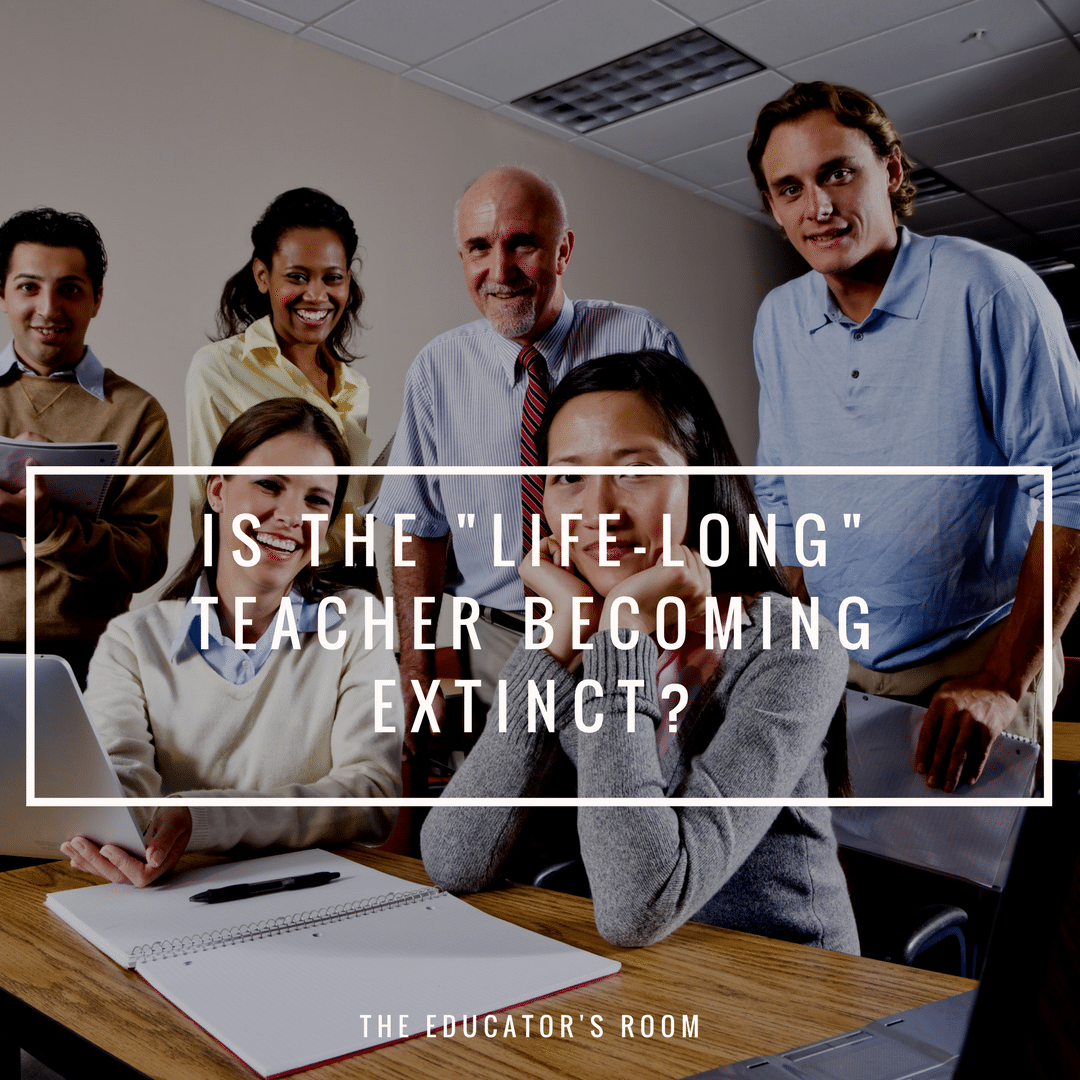Last week, a question was posted on The Educator’s Room Facebook page that got me thinking. The question asked about our goals as teachers and where we see our professional careers going. I scrolled through the comments and saw a lot of different responses. Many responded, but there were few who stated that their career aspirations were to remain exactly where they are.
After reading through the responses, I thought about my own – somewhat tumultuous – relationship with teaching. Currently, I work as an online education and teach adjunct at a local community college. Before that, I taught high school English at a charter school. When considering where I see myself in 10 years: the fact is, I don’t see myself as being a life-long teacher. Though, this hasn’t always been the case.
Already, I know many former teachers who are doing something different entirely. And, I know many others who see the high school or elementary classroom as a stepping stone towards. However, I know few teachers who are happy right where they are.
Some may ask, “why?” Since the Facebook discussion question was posted a week ago, I’ve been thinking about this, too. I went into teaching because I was passionate about education, about equal access to education and ideas, about my community and about the subject matter. I still care deeply about all of these things. But, with less and less freedom in the classroom, and with mounds of red tape to navigate through, I don’t necessarily feel that my role as a teacher is making the impact I hoped that it would.
[bctt tweet=”I don’t necessarily feel that my role as a teacher is making the impact I hoped that it would” username=”EducatorsRoom”]
Why are we seeing more teachers leave the field?
Mostly, I’ve come away, especially from high school classrooms (there is much more academic freedom in college), as feeling stifled. Of course, I discussed this in a September 2017 article, TEACHING RESPECT: Removing Creativity Hinders Respect for Teachers. In addition, Shawnta S. Barnes also tackled the subject of teacher burnout in her article Extinguish the Flame and Stop Burning the Midnight Oil, where she explains how we as teachers can set some healthy boundaries for ourselves since we feel the need to live up to expectations that are mentally draining. Barnes also discusses the notion in her popular Indy/Ed piece Teachers Quit Principals, Not Schools, where she explores how a school’s administration can lead to burnout and even mental health decline. There are countless others who have tackled the subject or some variation of it.
In 2016, NPREd released a broadcast regarding What are the main reasons teachers call it quits? Eric Westervelt and Kat Londsdorf cite money as being one of the reasons, stating that “Beginning teachers make about 20 percent less than college graduates in other fields.” However, money doesn’t appear to be the biggest reason being why so many teachers seem to be leaving the profession. Many teachers do not feel that they are valued and moreover feel left out of important discussions and decisions.
A Change in Workplace Culture
Changes in workplace culture may also be a contributing factor to why we see teachers leave the field. It is rare these days where we see anyone stay in the same job until retirement. People want different things out of their careers, nowadays. They want to feel valued. They want to contribute to issues and discussions that they care about. And, they want a work-life balance with fair pay and a decent benefits package.
GenKFD discussed the millennial-attributed phenomenon of “job hopping” in the article Why Millennials Are Job Hopping Like Crazy, where it is explained that studies show that millennials will likely have about 9 different jobs over the course of their time in the workforce, which is more than double what it was 20 or 30 years ago. The stigma that was once associated with job hoppers is vanishing. People are leaving jobs or switching jobs to better themselves and their careers.
The Future of Life-Long Teachers
With more teachers leaving the field, baby-boomers on the brink of retirement and less young people going into education, we are sure to see a shortage of teachers in coming years. In a Huffington Post Article, This is How Millennials Feel About Teaching uncovered some notions that I find troubling about how teachers are viewed culturally and how millennials feel about going into the field themselves. In a survey conducted, a mere 35% said that they would describe teachers as “smart”. And 50% of those surveys thought that in recent years, teaching had become “less prestigious”. 39% claimed that teacher salaries would need to increase before they would “consider the profession”. Many were generally disinterested in becoming teachers, overall.
Needless to say, much like many other professions have seen an evolution, teaching will need to evolve if we are to keep qualified educators in the field.







Great read. I once imagined retiring from the classtoom, but I am considering what else there might be for me.
Great article. You capture the conversation that teachers and states are having around they country and places around the world.
North Carolina discussed the state of working conditions and its impact. Georgia in 2015 published a study called the Dropout Crisis that lists 8 reasons why teachers will not recommend the profession.
We have to address this issue otherwise students will suffer.
#TeachersInTouch #SoTeachersCanTeach #ALLIn4Teachers